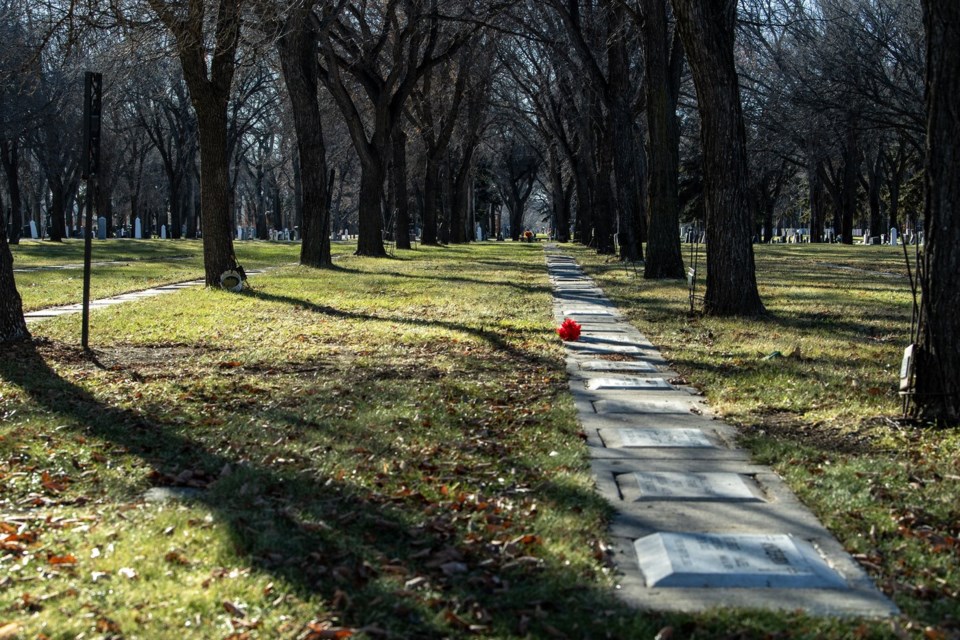HALIFAX â Funeral directors across the country are warning grieving families about a trend of third-party websites republishing obituaries for profit.
Jim Bishop, the funeral director for Bishopâs Funeral Home in Fredericton, said heâs noticed an increase in grieving people who use his services complaining of altered death notices â sometimes with erroneous details â appearing on one such website called Echovita.
Bishop said Echovita's actions are part of a trend of scraping information from funeral home and newspaper websites and reposting it alongside options to buy flowers and digital candles. He said this data-scraping poses "a moral issueâ because it is capitalizing on obituaries without the families' knowledge or permission.
âWhen people click on Google, and they search a personâs name ⦠they donât always realize theyâre not dealing with the funeral homeâs website with that source. Theyâre being sent a link to a third-party outfit they think is us, and itâs not.â
He said that since mid-July, about a dozen people have advised him their loved oneâs obituary had been taken.
Jeff Weafer, president of the Funeral Services Association of Canada, said the practice is particularly problematic because writing an obituary is the last chance a family gets to tell the story of their loved oneâs life. Having that story taken and used without permission can feel like an invasion of privacy during an especially vulnerable time.
âPart of the expression of grief for families is they want to proudly tell the story of their father, their brother, their mother. Itâs very therapeutic to tell that story, whether thatâs done through an obituary or a Facebook note that shares the details of oneâs life,â Weafer said in an interview.
The website of the Better Business Bureau, which has not awarded Echovita accreditation, shows five complaints against the company. One complaint from 2022 called Echovita a "trolling company" for posting an unapproved and altered version of an obituary, causing great distress to the grieving family.
An unnamed Echovita official responded to the complaint that the company had removed the obituary from its site. "I would like to add the information we share was not private as stated, since the original obituary was posted publicly on the internet," the response said. "In further sharing the basic facts, as we do, which is legal, we made a human error and we apologized."
A review of Echovita last month on the Better Business Bureau site also expresses distress over the websiteâs practices.
âMy grandfather recently passed away, and when I Googled his obituary, the first hit was from some random site Iâd never heard of, Echovita. The obituary was not what my family had published,â the review reads. The review continues to say that on top of âbeing terribly written,â the republished obituary named living family members mentioned in the original notice as deceased.
âMy family was devastated that this fake obit was the first hit people would see when they looked up my grandfatherâs name. We were so embarrassed that people would think weâd written something of such poor quality to âhonourâ our late loved one.â In a reply to the review, Echovita apologized "for any errors within the obituary."
Echovita representatives did not agree to an interview with The Canadian Press. In an emailed statement, a public relations agent speaking on behalf of the company said family members who notice errors in obituaries can request a revision directly on the website but provided no details about the company's verification processes.
The Canadian Press also asked how Echovita verifies that flowers purchased on the website â which range in price from $90 to $334 â make their way to grieving families or the funeral homes where services are held. Echovita's spokesperson said that 95 per cent of all flowers that are ordered arrive at their destinations; however, the spokesperson offered no details to back up that claim.
Weafer said the Funeral Services Association of Canada is lobbying the federal government to strengthen privacy legislation and prevent families from suffering more, but he said the funeral association has yet to see a "significant response" from lawmakers.
The Bereavement Authority of Ontario has also published two separate notices about Echovita's practices, one in February 2021 and another in February of this year. A spokesperson for the authority said 11 people have complained since the beginning of this year about being "deeply upset" about their loved ones' obituaries being used on the website.
Quebec's registry of businesses lists a Quebec City address for Echovita and says Paco Leclerc is the president.
In a 2019 court decision, Leclerc was named as one of the directors for the now-defunct website Afterlife, which was ordered to pay $20 million in damages to grieving families for the unauthorized use of death notices and photos. The ruling found that Afterlife repeatedly violated copyright rules by using data to market flower sales.
At the time, Erin Best, the lawyer representing the plaintiff, expressed hope the decision would act as a âdeterrentâ against pirating obituaries, and warned that people copying obituaries should expect legal action.
While their push for tougher legislation continues, Bishop and Weafer both encourage grieving families to ask any third-party companies posting obituaries to remove unauthorized posts, or to contact government consumer protection where it is available.
This report by The Canadian Press was first published Aug. 4, 2024.
Cassidy McMackon, The Canadian Press



